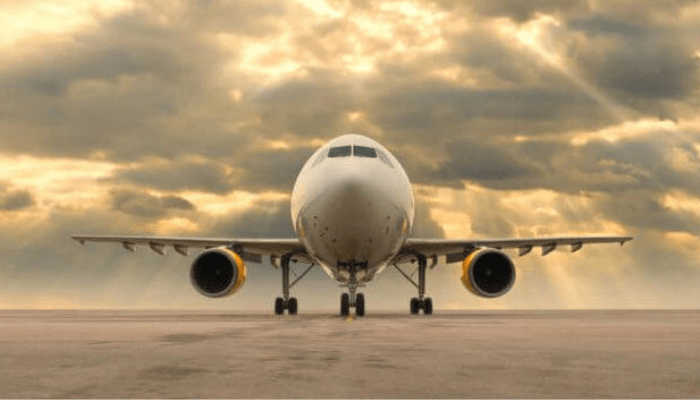Airplane scarcity in Nigeria may worsen as airlines struggle to access new aircraft from global leasing firms.
Aircraft leasing companies are running out of supply as global manufacturers struggle to meet delivery deadlines, forcing airlines to retain their old aircraft instead of renewing them, squeezing lessors’ operations.
Leasing firms are releasing their aircrafts to ‘highest bidders’ and countries with low risk factors, leaving Nigerian airlines competing with global carriers for airplanes.
Read also: FX-induced costs knock off airlines’ fuel price gains
Causes of low supply
The aftermath of COVID-19 crisis in 2020 has slowed aircraft production and delivery dates. In addition, Boeing Max aircraft ordered by major airlines globally have faced delays and cancellations, causing a lag in the supply chain.
Also, a rise in demand for the A320 Airbus aircraft has also delayed delivery dates for the A320neos.
Ado Sanusi, managing director/CEO of Aero Contractors, told BusinessDay that the COVID-19 crises forced subcontractors to manufacturers to shift their concerns to health requirements, thereby disrupting the supply chain.
He said the situation made airlines that were supposed to renew their fleet to hold onto their existing fleet. “So, most lease rentals or lease contracts that were expiring were extended. So leasing companies became short of aircrafts.
“For instance, let’s say South-West was supposed to retire about 20 737-800 airplanes in 2024. Now, they will not retire those 20 airplanes, but probably will retire five. So, that has already in itself created a shortage in the second-hand market of aircraft. So the leasing companies don’t have enough aircraft to lease out,” Sanusi explained.
He also noted that there is a growing demand for air travel, which has also put more strain on the aircraft.
“Another issue is that some of the aircraft manufacturers have gone under. For instance, the manufacture of the CRJs, the Q400s, has stopped and there has not been any replacement for them. These are fewer than 100-seater airplanes that were in the market before but are no more there,” the Aero Contractors MD said.
He said while Nigerian airlines have not been in the forefront of buying brand new aircraft but rely mostly on second-hand and leased planes, the effect of the global scarcity is impacting the nation’s aviation sector.
Read also: Airlines profitability to hit $36bn in 2025 on low jet fuel price – IATA
“We’re also just coming out of a subtle blacklist. So, our market is still considered high risk. So, even with the fewer aircraft available for lease, lessors would rather want to put their aircraft in a less risky, high yielding market than put it in Nigeria.
“So, we are at a disadvantage. The minister has done very well to ensure that he puts in the Cape Town Convention. He gets high scores and tries to make the environment conducive. But this, like any other thing in credit ratings, takes some time to build.”
Earlier this year, the International Air Transport Association (IATA) had said that aircraft ordered by airlines during the year may not be delivered by the manufacturers until 2040, which is 15 years from now.
In December, Willie Walsh, IATA’s director-general, noted that supply chain issues were frustrating players in the industry, saying the performance would negatively affect the airline’s performance in 2025.
The association in a report said aircraft and critical component manufacturers had continued to struggle to restore output to pre-pandemic levels following severe and lasting disruptions of global supply chains.
“By the end of 2024, the global order backlog had reached an unprecedented 17,000 aircraft, equivalent to 50 percent of the current fleet—far exceeding the historical norm of one-third.
“At current production levels, it would take more than 13 years to clear the existing backlog, meaning aircraft ordered today may not be delivered until nearly 2040—well beyond typical airline planning horizons.
“This makes short-term capacity planning extremely challenging, which could potentially lead to inefficiencies and higher costs.”
George Uriesi, chief operating officer, Ibom Air, confirmed to BusinessDay that global logistics challenges have slowed down aircraft deliveries, hurting several global carriers.
Read also: Nigeria keeps clean bill as Mozambique tops countries trapping airlines $1.3bn
Uriesi however noted that Ibom Air has an existing order for new aircraft.
“We have an existing order for new aircraft, but it comes with a non-disclosure agreement. So we cannot comment on the specifics,” he said.
Obiora Okonkwo, chairman, United Nigeria Airlines, said: “It is only when the new aircraft are manufactured and delivered to the bigger operators or bigger lessors that they now replace it with new ones. And then, you have aircraft in the market.
“So those people who had signed off aircraft for six to seven years, which were supposed to expire last year, have only extended it, worsening the scarcity,” Okonkwo said.

